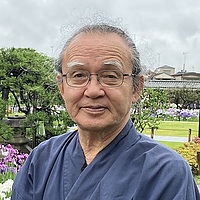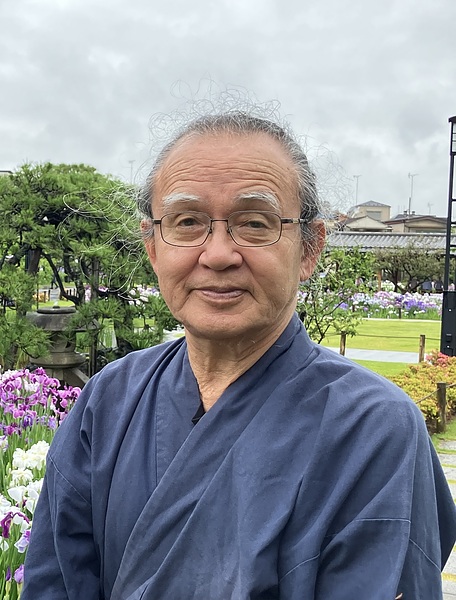英検1級道場-英語は繰り返しを極端に嫌う言語です

最近のレッスンで、下記の二つを使って英語の基礎を固めています
英検準1級の過去問ですが、大変に優れた教材です
隅々まで、徹底的に鍛えています
■準1級長文読解 Smallpox
Smallpox
Throughout much of history, smallpox was one of humanity's most feared diseases.
Caused by the deadly Variola virus, it resulted in horrible skin blisters, pain, and fevers.
Smallpox was spread by coughing and contact with victims or their clothing and bedding, and it killed up to a third of those infected. There is no cure, and until the late 1700s, the only defense against it was a procedure known as variolation. As smallpox survivors were known to become immune to the Variola virus, fluid or tissue containing the virus was introduced into the body of an uninfected person. If all went well, the treated person developed immunity. The treated individual still suffered some symptoms of the illness, however, and in about 2 percent of cases, something went wrong with the treatment, resulting in the patient being killed by the virus or spreading it to others.
In 1796, British physician Edward Jenner noted that farmwomen who milked cows daily did not get smallpox. Their exposure to cows caused them to instead develop cowpox, an illness that resembled smallpox but was far less severe. To test the connection between the virus that caused cowpox and the Variola virus, Jenner exposed volunteers to tissue from a cowpox-infected farmwoman. Later, he exposed them to the Variola virus and observed that the volunteers showed no signs of smallpox. Jenner created the word "vaccine," based on the Latin word "vacca " meaning "cow," to describe his new technique for preventing smallpox.
Vaccination programs spread rapidly, virtually eliminating smallpox from many developed countries, but in the mid-twentieth century, millions were still suffering from the disease around the world. It was not until 1959 that the World Health Organization (WHO) launched a program to eliminate smallpox from developing nations as well.
Although successful in some areas, the campaign faced a serious obstacle. In countries with large populations and high rates of infection, such as India, the task of vaccinating everyone was so expensive and time-consuming that many believed the elimination of smallpox to be impossible. In 1966, however, William Foege, an American doctor working in eastern Nigeria, realized that close monitoring and fast responses could prevent the spread of smallpox outbreaks.
By vaccinating everyone both within and immediately surrounding a smallpox victim's community, he was able to stop outbreaks in the region in five months. The WHO adopted the technique, and it proved to be just what was needed to eliminate the virus.
The last naturally contracted case of smallpox occurred in 1977, and the WHO officially declared the virus eliminated in 1980, marking a major achievement in medical history. Yet samples of the Variola virus are still kept in labs in the United States and Russia in case smallpox returns. Most nations in the world, along with the WHO, favor destroying these stocks. The U.S. and Russian governments, however, say that doing so would be extremely risky, as no one can be sure that secret or forgotten samples do not
still exist somewhere in the world. A new outbreak, whether accidental or the result of an act of bioterrorism, could cause an epidemic.
■準1級リスニングパート②2012-3(D) Working from home
(D) Working from Home
Telecommuting, or working online for a company from home, is a growing trend among Americans. Some studies predict that by 2020 nearly one-third of the U. S. workforce will telecommute. The main benefits of telecommuting are increased job satisfaction and reduced energy use for transportation. However, the benefits actually go deeper.
Telecommuting expands employment opportunities for the handicapped and elderly, and it helps working parents balance family responsibilities with their careers. It is also good for employers as it gives them access to a bigger potential work force and they can save on office and parking space.
Morley Winograd, a former AT&T executive, believes young workers are driving this trend. He says they consider traveling to an office a waste of time and money because they are accustomed to connecting with the world mainly through the Internet. It seems likely, then, that telecommuting is here to stay.
読解やリスニングをしっかりと鍛えたい人は声をかけてください
ホンモノの英語力を養うお手伝いをします
-------------------------------
忙しいあなた
休息が必要です
身体のストレッチ、脳波を下げて瞑想をする
1日の中でそんなひと時をもつのはとても意味があります
私は、頻繁にスタジオに通って体を鍛え、心の安定をはかっています
体力、気力、集中力、記憶力が高まっています!
下記を覗いてみてください
https://ameblo.jp/brainandmind-dahnyoga/
https://ilchibrainyoga-funabashi.com/
■動画
https://www.youtube.com/watch?v=bDDCt1MoDEo☚アメリカのスタジオでトレーナーが動きを丁寧に説明:英語の勉強になります
https://www.youtube.com/watch?v=dOhbeSKwQk8&list=PLzBffnngawuUUYeMtRVl☚習っている気功の一つです











